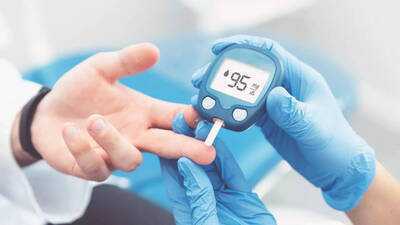
Persistent high blood sugar in people with diabetes, even when taking insulin , can be alarming and frustrating. According to a study published in
Nature, the primary reason behind this phenomenon is a condition called insulin resistance . This occurs when the body’s cells—especially in muscles, liver, and fat tissue—stop responding effectively to insulin, preventing glucose from being absorbed and used for energy. Several factors, including excess weight, lack of physical activity, stress, certain medications, and underlying health conditions, can worsen insulin resistance. Understanding the causes helps people with diabetes manage their condition better and work with healthcare providers to adjust treatment strategies.
Insulin resistance: the main reason blood sugar stays high
Insulin resistance prevents cells from responding to insulin, meaning glucose cannot enter cells efficiently for energy. Even with insulin injections or natural insulin production, the hormone cannot lower blood sugar effectively. This makes controlling glucose levels challenging, and over time, the body may require higher or more frequent doses of insulin to maintain normal blood sugar levels .
Common causes you may not expect
Several everyday factors can contribute to persistent high blood sugar. Using expired insulin, injecting into the same spot repeatedly (causing lipohypertrophy), or incorrect injection techniques can reduce insulin’s effectiveness. Dietary habits, such as consuming large or irregular meals high in carbohydrates, can spike blood sugar beyond insulin’s capacity to control it. Stress, illness, or certain medications like steroids may also interfere with insulin action. Finally, missing doses or not following a proper injection schedule can worsen blood sugar management.
Morning highs and the dawn phenomenon
Many people notice elevated blood sugar in the morning despite careful management. This “dawn phenomenon” occurs due to natural overnight hormone fluctuations or insufficient long-acting insulin coverage during early morning hours. Monitoring blood sugar at different times and adjusting insulin types or doses with medical guidance can help manage these early-morning spikes.
Ways to prevent high blood sugar
- Rotate injection sites regularly to improve insulin absorption and prevent lumps.
- Engage in regular physical activity to enhance insulin efficiency.
- Eat balanced meals with controlled carbohydrate portions and avoid irregular eating patterns.
- Manage stress through techniques like meditation, yoga, or deep breathing exercises.
- Maintain a consistent sleep schedule to support hormonal balance and glucose control.
- Inform your healthcare provider about any new medications that may affect blood sugar.
- Regularly review and adjust your insulin plan with your doctor to ensure proper dosing and timing.
Disclaimer: This article is for informational purposes only and does not constitute medical advice. Always consult a qualified healthcare professional before making any changes to your health routine or treatment.
-
Bihar SIR: Manoj Jha-Led RJD Delegation Meets Full Bench Of ECI Over Voter Disenfranchisement Concerns

-
Pahalgam Attack: Court Rejects NIA's Plea For Polygraph, Narco Tests Of Accused As They Deny Consent

-
Delhi HC Sounds Alarm Over Rising Student Suicides, Calls For Robust Anti-Ragging System

-
JPSC JET 2025 Notification Out: Applications Begin On September 16 At jpsc.gov.in; Know Eligibility Criteria, Exam Pattern

-
Materialists OTT Release Date: When & Where To Watch Dakota Johnson, Chris Evans & Pedro Pascal's Romcom Online
